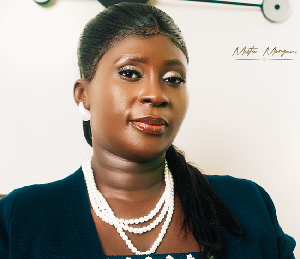Accra, Aug. 15, GNA - A total of 4.5 million adolescent women worldwide undergo unsafe abortion each year, causing danger to their reproductive health, a research by Pathfinder International (PI), an international Non-Governmental Organisation, has revealed.
Mrs. Gertrude Ananse-Baiden, Assistant Programme Officer, who disclosed this at a dissemination of a Youth Friendly Post-Abortion Care Project in Accra, noted that despite the prevalence rate of unsafe abortion among young women, few programmes directly targeted youth and adolescents within Post -Abortion Care (PAC).
She said the proportion of women between 15-19 years who had had an unsafe abortion in Africa were higher than any other region in the world. "About 60 per cent of worldwide unsafe abortions are performed on African women under the age of 25."
She said though laws on abortion were relatively liberal, this was often misunderstood by the public, including health professionals, adding that the issue of abortion remained sensitive due to socio-cultural barriers.
Mrs Ananse-Baiden said the research was to address unsafe abortion among adolescent women would increase access to PAC services in eight implementing countries including Ghana, Angola, Ethiopia, Kenya, Nigeria, Tanzania and Uganda.
She mentioned Ghana's interventions measures as refurbishment of some selected health facilities to ensure privacy and comfort, regular monitoring and partnership with key management and service providers to introduce the PAC project.
Mrs Ananse-baiden noted that globally about 125 service providers underwent comprehensive skills-based training, and 180 facility-oriented, 6,691 youth and 7,988 community members and stakeholders were provided with information to carry out sensitisation. She called on the Ghana Health Service to impress on all doctors on the need to support nurses and midwives trained to provide PAC service.
"For PI, our ultimate satisfaction will be not only to see the number of PAC clients increase but also to see the numbers eventually reduced." Ms Florence Nakazibwe, Commonwealth Human Rights Initiative, Africa Office, who gave an overview of the Law on Abortion in Ghana said under section 58 of the law, any person who aided and abetted, administered drugs, induced a woman to cause abortion was liable to a term not more than five years imprisonment.
She, however, said the law permitted abortion in cases where the individual had been defiled or raped, or was threatened by a disease that was a risk to life or in case of injury to the mental and physical condition.
Ms Nakazibwe noted the absence of a policy framework for implementing the law and ensuring that safe abortion services were readily available adding, "unsafe abortion is the fourth highest cause of maternal mortality".
She said there was the need for more research and utilization of the findings to advocate for change in attitude and harmonize laws and policies.
Dr. Patrick Frimpong, Fellow of West Africa College of Sciences, said some of the achievements of the project included the improvement in capacity building of health workers, provision of logistics and the provision of modern equipment.
He identified some constraints of the project as the difficulty in recruiting trainees, bad attitude of services providers towards clients, lack of proper documentation and high equipment breakdown.
Prof Fred T. Sai, Presidential Advisor on Population Issues, Reproductive Health and HIV/AIDS, said over 22 per cent of pregnancies worldwide ended in abortion, with half of them being unsafe. "In West Africa a study conducted in 2000 estimated 30 per cent of unsafe abortions. In Ghana, we have up to 30 per cent, two in five unsafe abortions occur among women under 25 years."
Prof Sai noted that victims employed methods such as applying large doses of drugs of various kinds, insertion of sharp objects into the cervix and drinking or flushing the vagina with caustic liquids. He said early diagnosis and correct treatment; blood re-hydration and antibiotics were needed.
Prof Sai called on the Ministry of Health to develop policy guidelines on comprehensive abortion care as required by the law.
General News of Saturday, 16 August 2008
Source: GNA












